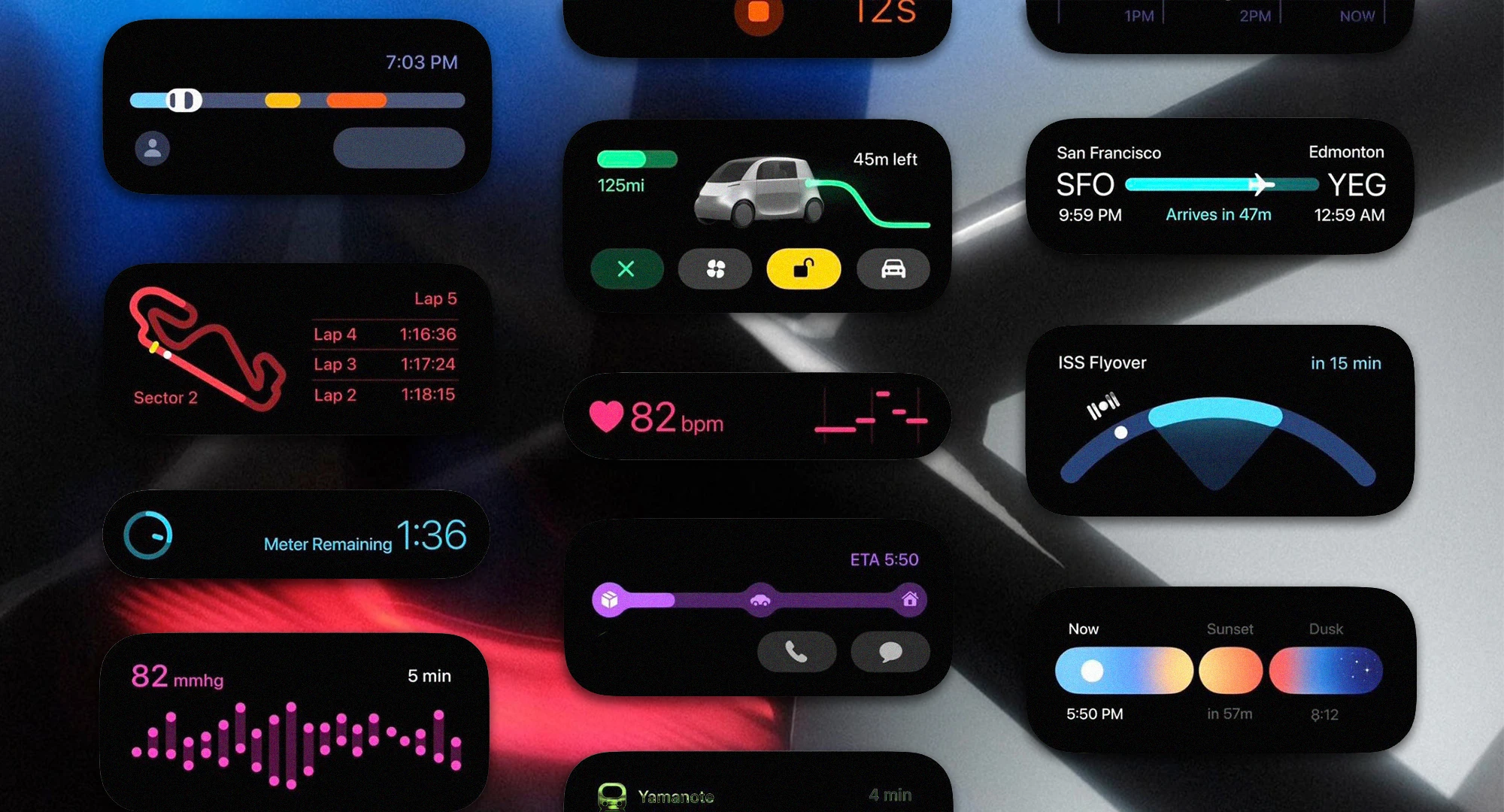
Top Pharmaceutical Marketing Agencies to Work With - February 2026
Introduction
Pharmaceutical marketing has evolved rapidly over the past year, driven by regulatory shifts, digital advancements, and changing patient expectations. In February 2026, selecting the right pharmaceutical marketing agencies is more critical than ever to navigate this complex and competitive landscape effectively.
While many companies are building internal teams, hiring a pharmaceutical marketing agency remains vital for accessing deep expertise, overcoming bandwidth constraints, and managing costs strategically. In the sections ahead, we reveal the top 10 pharmaceutical marketing agencies leading the industry and delivering measurable impact.
Top 10 Pharmaceutical Marketing Agencies
1. G & Co.
G & Co. is a pharmaceutical marketing agency known for helping enterprise pharma brands elevate their digital strategy, patient engagement, and market performance through research-led, integrated campaigns.
G & Co. serves as a strategic pharmaceutical marketing consulting firm to Fortune 500 healthcare and pharmaceutical brands, combining deep industry insight with digital execution across branding, omnichannel marketing, patient journey design, and data-backed performance strategy; clients turn to G & Co. when they need a pharma marketing company that blends brand, digital, and growth in measurable, scalable ways.
G & Co. is a minority business enterprise (MBE), as certified by the National Minority Supplier Development Council (NMSDC). If diversity inclusion is a part of your supplier process, contact us—we may be a great fit for your enterprise.
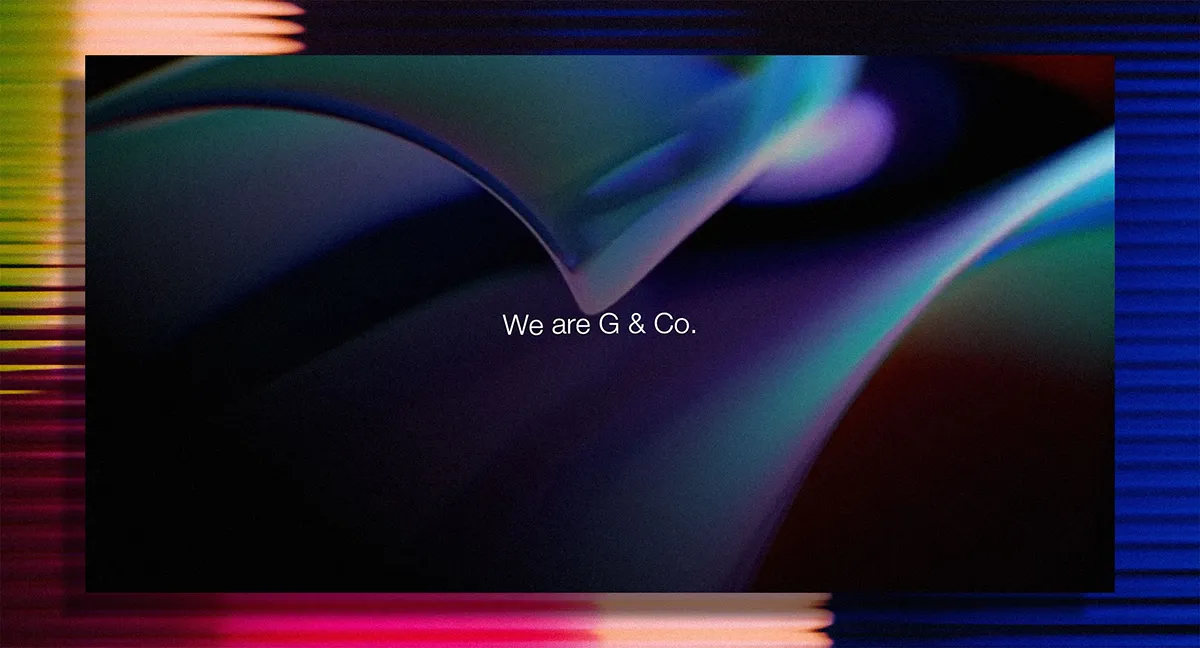
2. MediaMedic Communications Pvt. Ltd.
MediaMedic is a pharmaceutical marketing agency delivering multi-channel medical communications, SEO, and patient-focused digital marketing for life science companies, primarily in India.
As a pharma marketing agency, MediaMedic offers strategic medical content, visual storytelling, and integrated digital campaigns tailored to regulated environments, and is known for its ability to translate complex scientific information into impactful communications for brands across APAC and MENA regions.
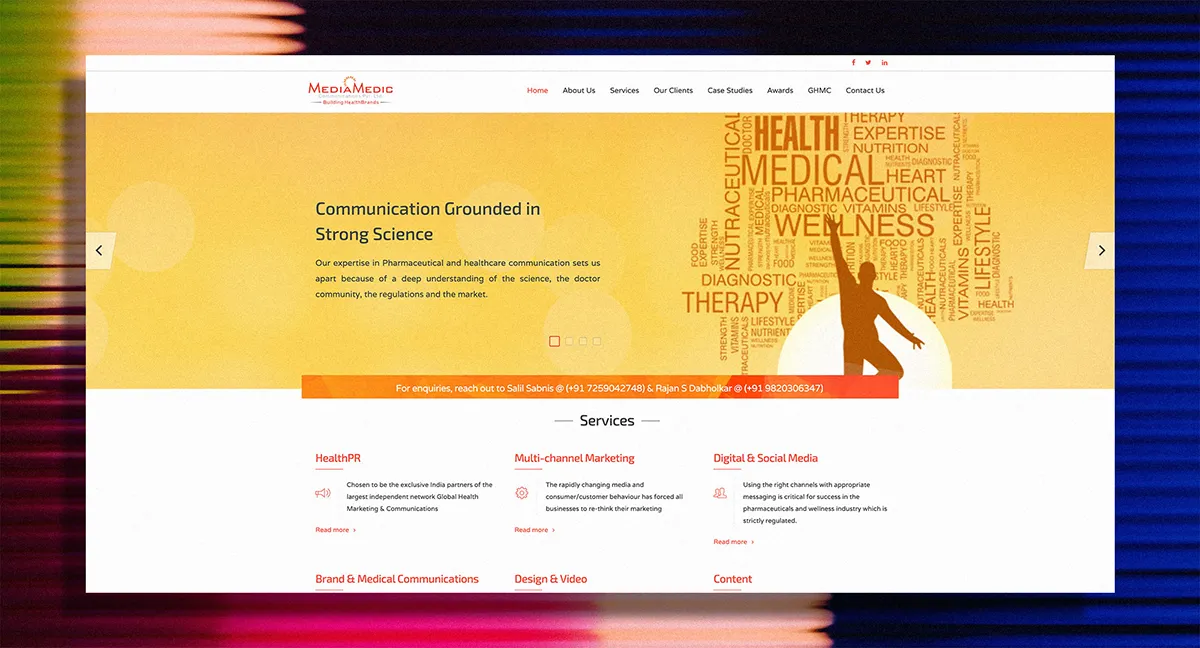
3. Brandaroo
Brandaroo is a UK-based pharma marketing company known for boosting brand visibility and patient outreach through SEO, PPC, and social media strategy for clinics and healthcare brands.
This marketing agency for pharmaceutical clients provides tailored digital growth plans and localized marketing campaigns for independent pharma and wellness brands, helping smaller companies build scalable digital foundations without compromising compliance or performance.
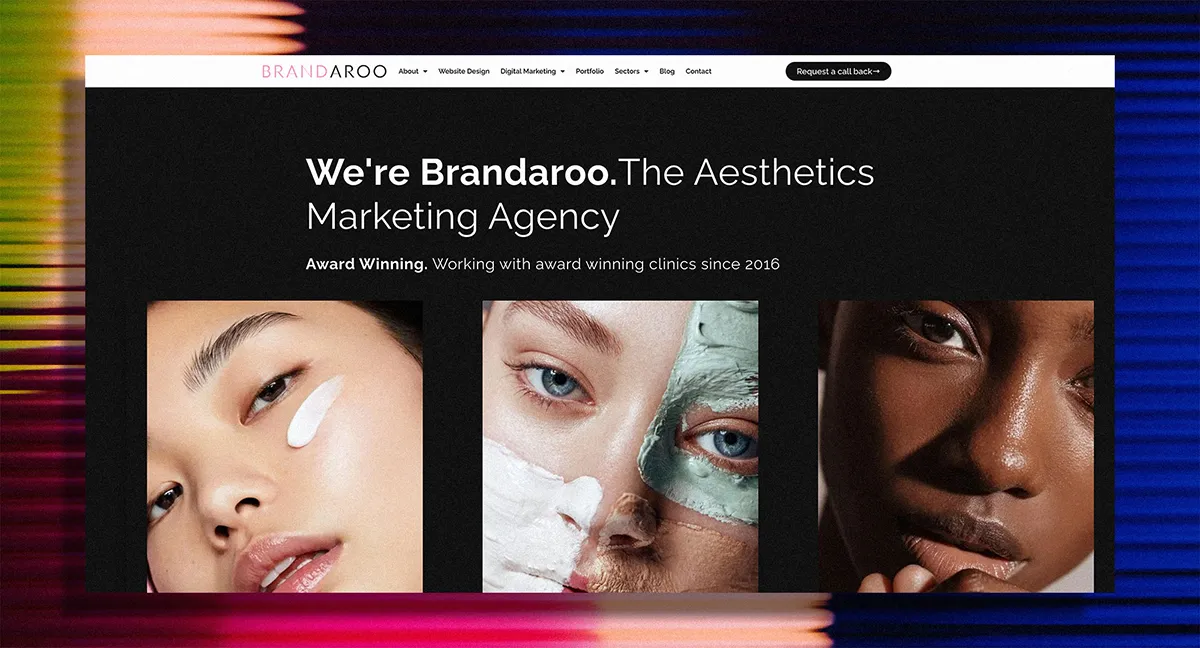
4. REQ
REQ is a U.S.-based pharmaceutical marketing agency offering reputation management, PR, SEO, and performance marketing for biotech and life science clients.
As a pharma digital marketing agency, REQ supports visibility, investor relations, and brand credibility for pharmaceutical firms navigating FDA-regulated communication, with experience in advocacy, brand reputation, and high-growth outreach strategies.
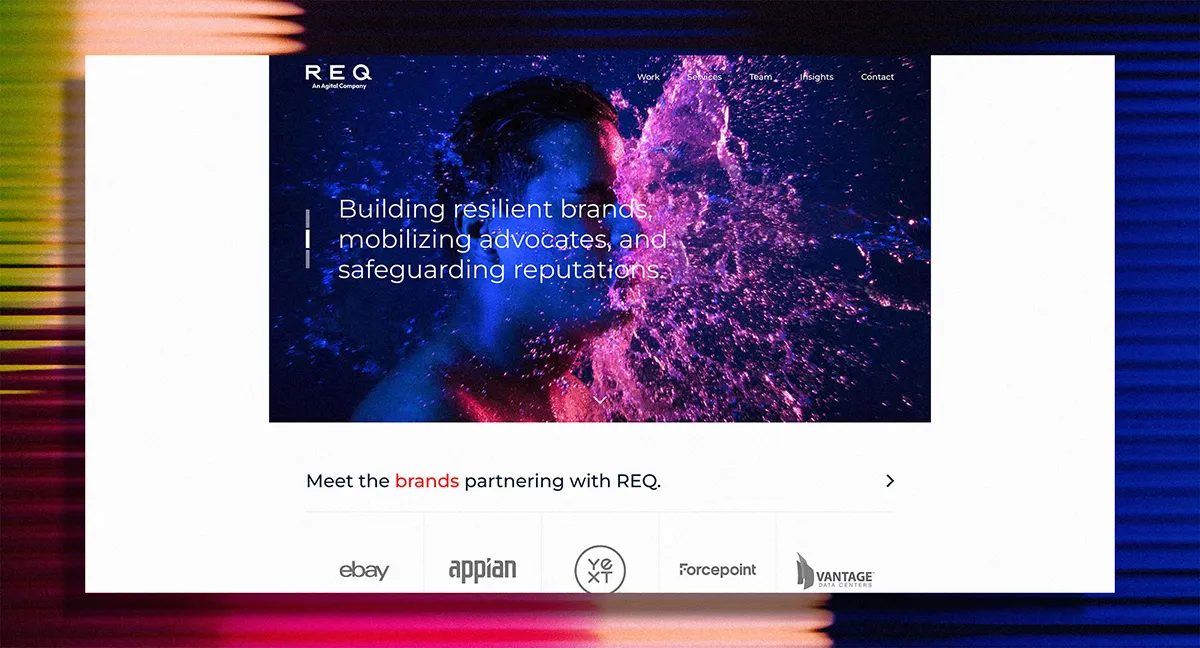
5. Kadiko
Kadiko is a pharma marketing agency recognized for creative brand positioning and data-driven digital marketing in healthcare and pharmaceutical verticals.
Operating as a pharmaceutical marketing consultant, Kadiko helps life sciences brands with omnichannel planning, market research, and go-to-market campaigns—making it a go-to agency for pharma companies seeking breakthrough brand stories and measurable traction.
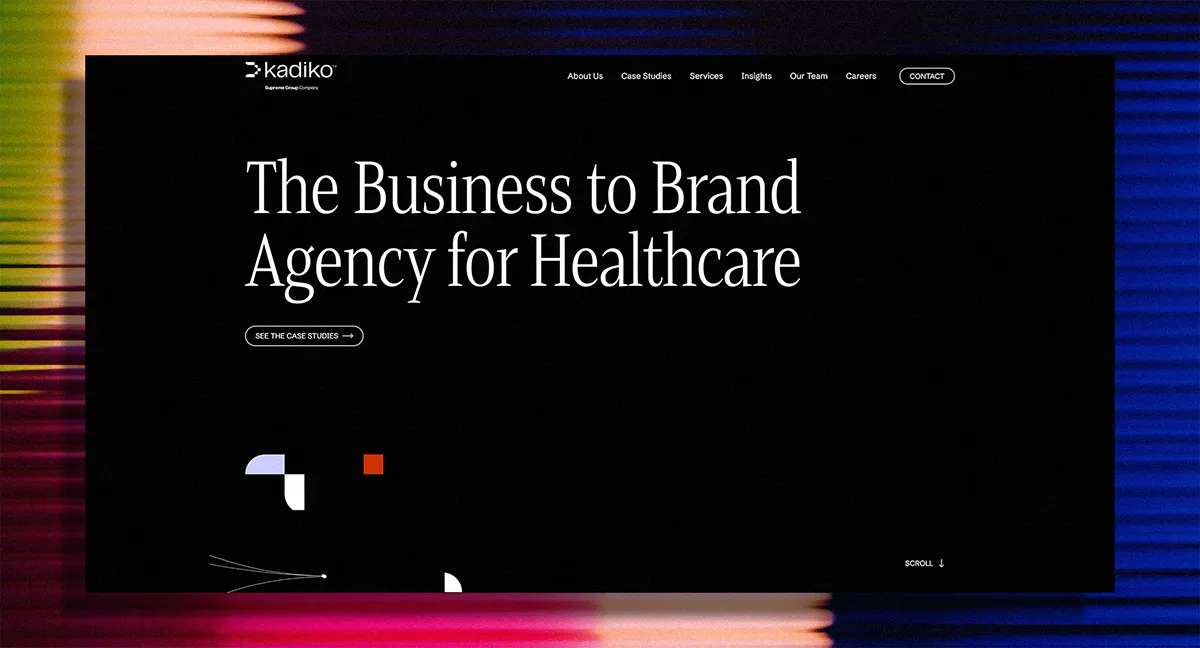
6 Health+Commerce
Health+Commerce is a pharmaceutical marketing consulting firm that specializes in PR, brand messaging, and thought leadership for early-stage pharma and biotech ventures.
Known as a pharma marketing agency with deep health-sector ties, Health+Commerce amplifies scientific innovation with editorial planning, earned media, and strategic brand storytelling that positions pharmaceutical startups for launch or growth.
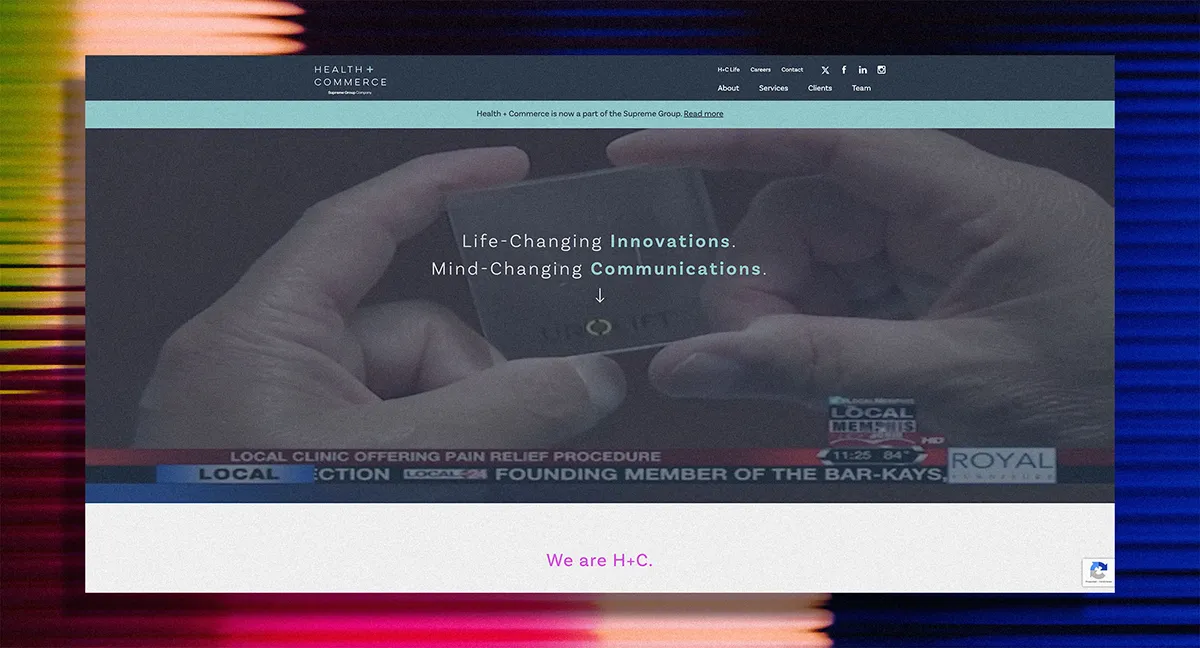
7. Bryant Brown Advertising
Bryant Brown is a full-service pharmaceuticals marketing agency focused on healthcare, biotech, and pharmaceutical clients through branding, digital, and creative advertising.
This pharma marketing company partners with brands like Amgen, Illumina, and Johnson & Johnson to deliver consistent, clear messaging through digital media, medical writing, and multichannel outreach, earning recognition for its long-term client relationships and high-impact creative.
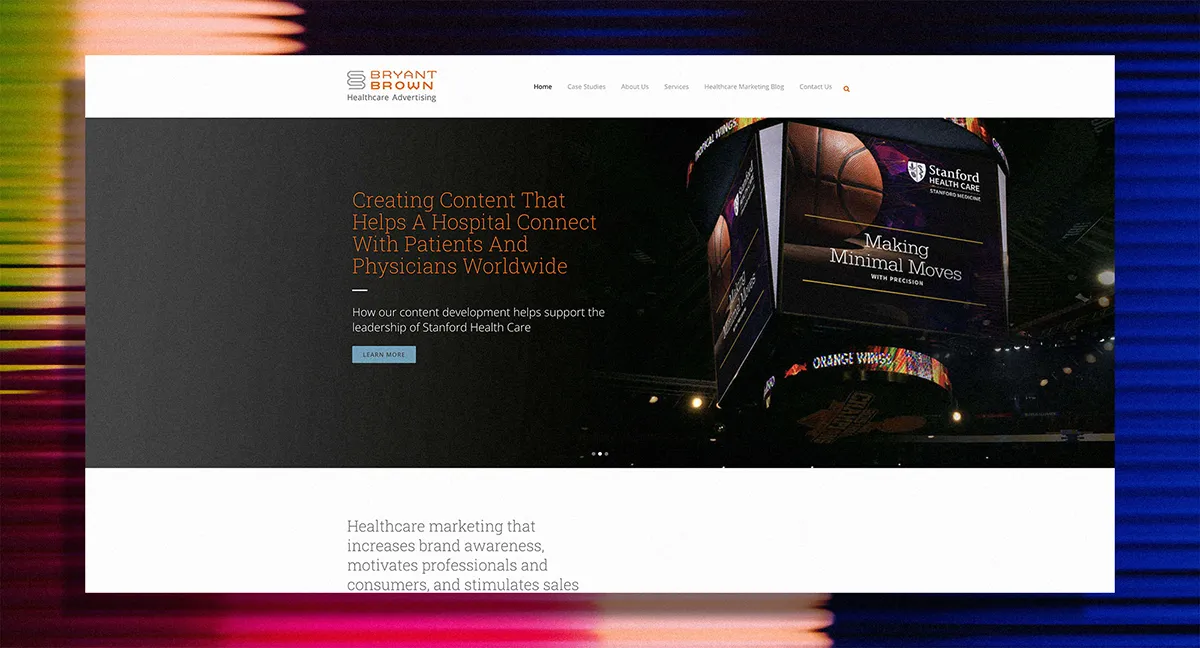
8. Siren Interactive
Siren Interactive is a pharmaceutical marketing consulting firm known for its focus on rare diseases, building relationship marketing strategies for niche patient communities and HCPs.
As a pharmaceuticals marketing agency, Siren specializes in CRM, audience research, web planning, and creative execution, helping brands connect with rare-disease stakeholders through education, empathy, and behavior-driven communication.
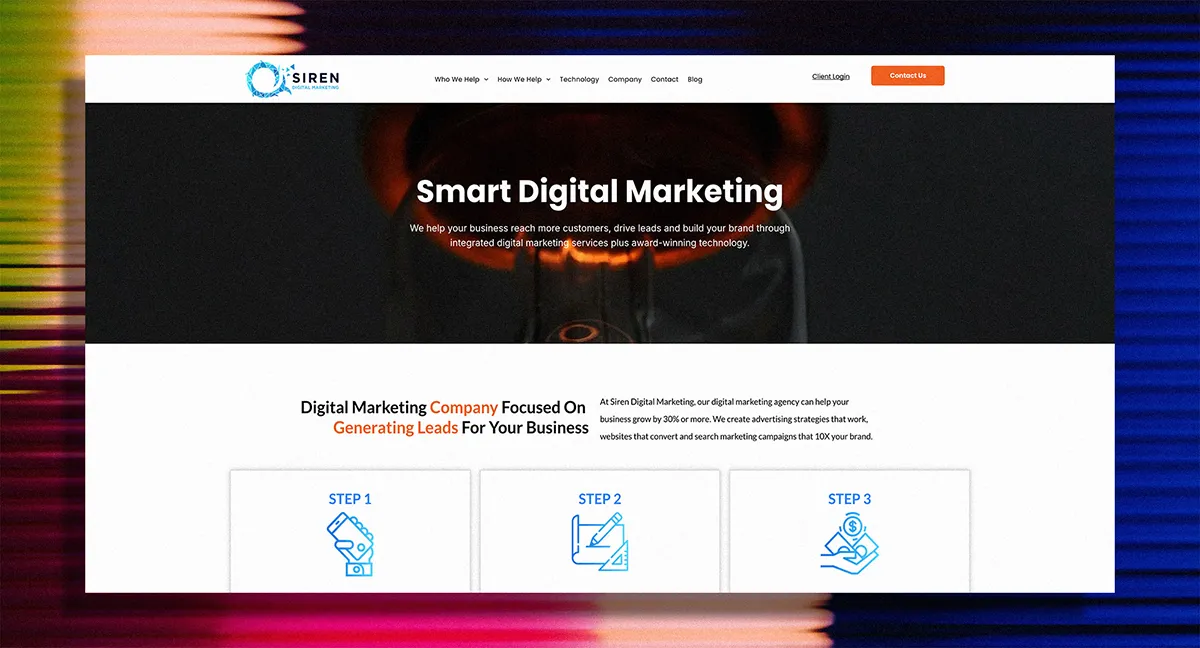
9. Intrepy Healthcare Marketing
Intrepy is a pharma marketing company that combines brand development, inbound campaigns, and digital experience strategy tailored to healthcare providers and pharmaceutical clients.
This pharma marketing agency delivers everything from HIPAA-compliant CRM strategies to demand generation and marketing automation, supporting pharma clients who need digital tools to manage patient acquisition and long-term engagement.
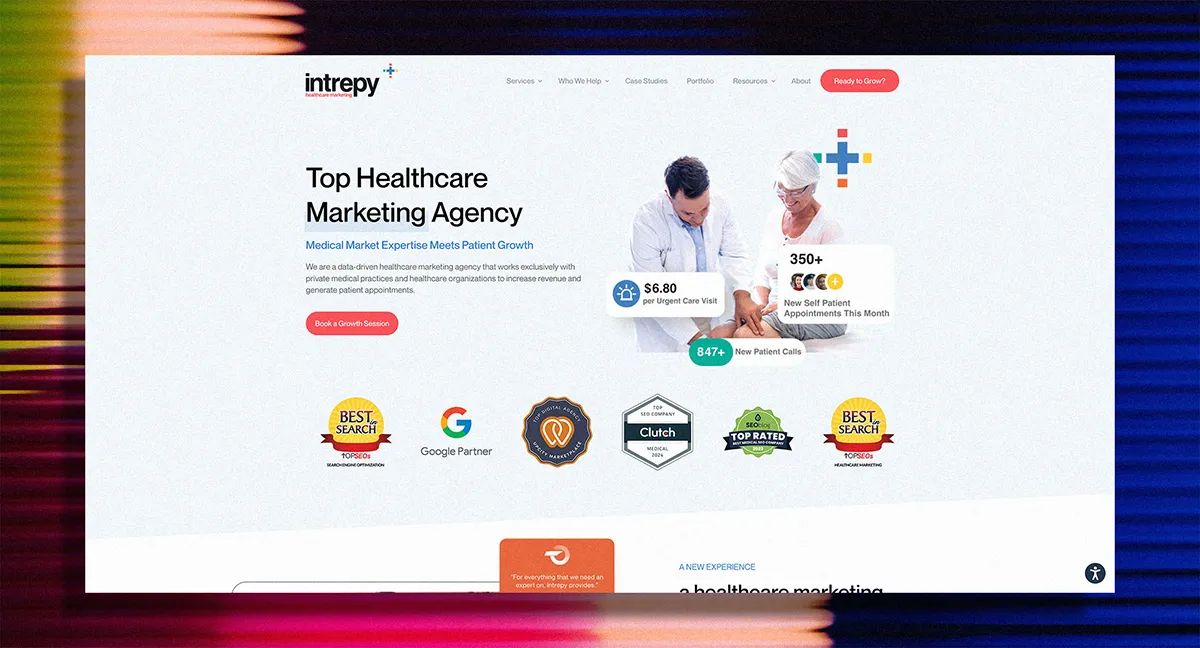
10. Digital Elevator
Digital Elevator is a pharmaceutical marketing agency offering SEO, PPC, and web design for pharma brands aiming to scale online efficiently. Known as a digital pharma marketing agency with B2B focus, Digital Elevator supports mid-size pharmaceutical firms and healthcare service providers with high-ROI marketing strategies, positioning them for scalable lead generation and visibility in competitive online spaces.
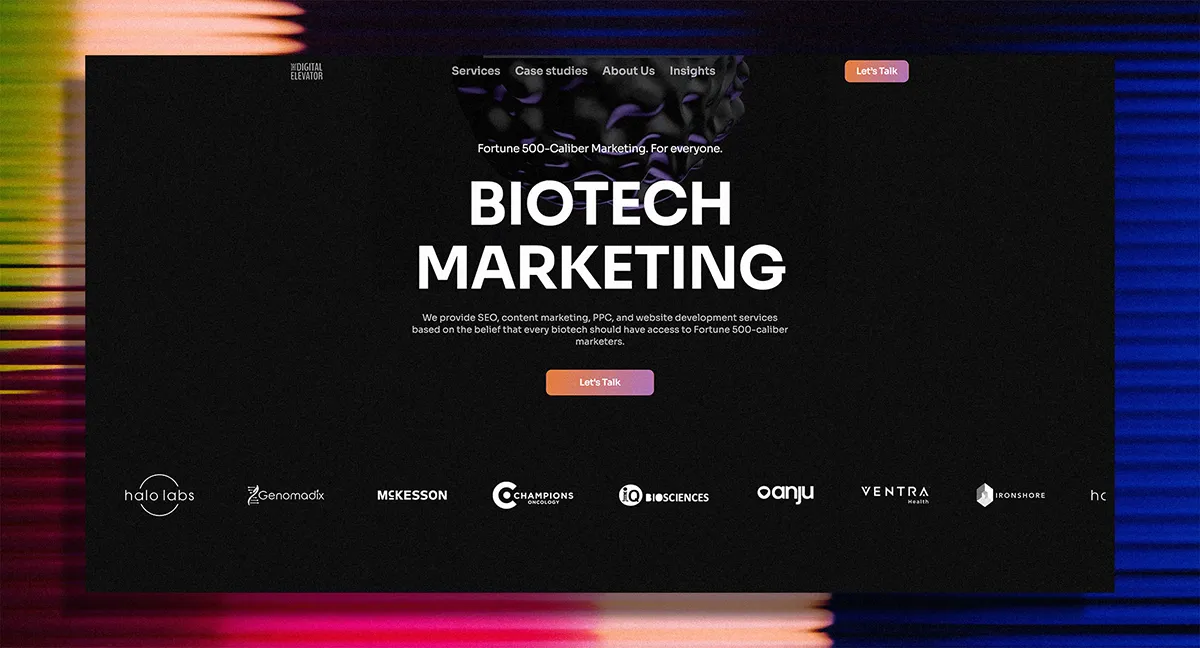
Let’s kickstart the conversation and design stuff people will love.

What Is Pharmaceutical Marketing?
Pharmaceutical marketing refers to the strategic promotion and communication activities undertaken by pharmaceutical companies to inform healthcare professionals, patients, and stakeholders about prescription drugs, over-the-counter medications, and medical treatments. It encompasses a range of efforts including brand positioning, product education, regulatory-compliant messaging, and multichannel campaigns designed to build awareness, encourage appropriate utilization, and support market access. Effective pharmaceutical marketing balances clinical accuracy with compelling communication to drive engagement across highly regulated channels, aligning commercial goals with patient outcomes and healthcare provider trust.
How Does Pharmaceutical Marketing Work?
Pharmaceutical marketing operates through a structured, compliance-driven framework that integrates market research, clinical data translation, stakeholder segmentation, and channel strategy to drive product awareness and adoption. The process typically begins with in-depth audience profiling—identifying prescribers, payers, and patient needs—followed by the development of targeted messaging rooted in scientific evidence. Campaigns are executed across digital platforms, sales enablement tools, medical conferences, and healthcare provider networks, all while adhering to strict regulatory guidelines. Success is measured through a combination of brand lift, prescribing behavior, and market access metrics, ensuring commercial effectiveness aligns with public health responsibilities.
What Is a Pharmaceutical Marketing Agency?
A pharmaceutical marketing agency is a specialized firm that provides strategic, creative, and regulatory-aligned marketing services to pharmaceutical, biotech, and life sciences companies. These agencies possess deep expertise in medical communications, digital engagement, multichannel campaign execution, and healthcare stakeholder dynamics. They support pharmaceutical brands by translating complex clinical information into accessible, compelling messaging for healthcare professionals and patients, managing brand launches, lifecycle marketing, and patient support programs. With a focus on compliance, analytics, and measurable outcomes, pharmaceutical marketing agencies play a critical role in optimizing product visibility, accelerating adoption, and driving sustained market performance.
Pharmaceutical marketing agencies offer a distinct set of capabilities tailored to the complexities of the life sciences industry. From navigating regulatory requirements to translating clinical data into clear, impactful messaging, these agencies are equipped to support every stage of a pharmaceutical brand’s lifecycle. Their role extends beyond promotion—they act as strategic partners that help companies engage healthcare professionals, educate patients, and accelerate product uptake in highly competitive and regulated markets. The following section outlines the core capabilities that enable a pharmaceutical marketing agency to drive commercial success while aligning with industry standards and public health priorities.
What Services Do Pharmaceutical Marketing Agencies Provide?

Brand Strategy and Positioning
Pharmaceutical marketing agencies develop brand strategies that define how a drug or therapy is positioned in the market relative to competitors. This includes identifying a clear value proposition, establishing brand architecture, and crafting messaging frameworks tailored to key stakeholders such as physicians, patients, and payers. Agencies conduct competitive analysis, market segmentation, and qualitative research to guide brand decisions that support differentiation and long-term relevance within a highly regulated environment.
Healthcare Professional (HCP) Engagement
Engaging healthcare professionals is a core service area, where pharmaceutical marketing agencies create scientifically accurate, compelling campaigns that inform, educate, and build trust. These efforts span sales force materials, speaker programs, email campaigns, CME content, and digital platforms tailored to HCP behaviors. Agencies also help segment prescriber audiences and develop omnichannel strategies that deliver timely, relevant information to drive prescribing confidence and clinical adoption.
Patient Education and Support
Pharmaceutical marketing agencies design patient-facing campaigns to increase awareness, understanding, and adherence around specific treatments or conditions. Services include the creation of educational materials, digital health content, medication guides, and support program communications that are empathetic, accessible, and aligned with FDA/EMA regulations. These initiatives are built to empower patients, improve treatment outcomes, and foster long-term engagement.
Market Access and Payer Strategy
Agencies help pharmaceutical companies navigate access and reimbursement challenges by developing payer value messaging, health economic data presentations, and supporting materials for formulary decision-makers. These services often include pricing strategy input, payer segmentation, and the creation of dossiers or coverage tools that clearly articulate the clinical and economic value of a therapy. The goal is to ensure products secure favorable coverage and reach the intended patient populations.
Omnichannel Campaign Development
Pharmaceutical marketing agencies execute integrated campaigns across digital, print, events, and sales channels to ensure consistent messaging and maximum reach. These campaigns are designed using insights from customer journey mapping, channel preference analysis, and engagement data to ensure the right content reaches the right audience at the right time. Agencies manage media planning, content creation, deployment, and optimization—all within regulatory guardrails.
Regulatory and Medical Review Compliance
Understanding and navigating compliance is essential in pharmaceutical marketing. Agencies work closely with legal, medical, and regulatory affairs teams to ensure that all promotional materials meet industry guidelines. They help clients manage medical/legal/regulatory (MLR) review processes, prepare compliant submissions, and structure messaging that is both effective and approved for public or HCP-facing use, minimizing risk while maintaining impact.
Clinical Data Translation and Scientific Storytelling
Pharmaceutical marketing agencies specialize in transforming complex clinical trial data and scientific research into clear, digestible narratives for non-scientific audiences. This includes writing and designing materials for sales reps, HCPs, patients, and investors that convey clinical value without oversimplification. This service is essential for aligning communication with regulatory expectations while maintaining scientific credibility and relevance.
Launch Planning and Execution
Launching a new pharmaceutical product requires coordinated planning, and agencies play a central role in go-to-market strategy. They build comprehensive launch roadmaps that include brand development, HCP and patient outreach, sales force readiness, digital campaign rollouts, and post-launch performance monitoring. Agencies ensure that all launch elements are aligned to support awareness, market penetration, and early adoption milestones.
Data Analytics and Performance Reporting
Pharmaceutical marketing agencies provide clients with robust analytics services that track campaign performance, customer engagement, and brand health across channels. This includes setting KPIs, conducting data analysis, and delivering actionable insights through dashboards and performance reviews. These services help pharmaceutical companies optimize spend, adjust messaging strategies, and demonstrate ROI in a data-driven, transparent manner.
How Long Does a Pharmaceutical Marketing Engagement Take to Complete?
Understanding the timelines involved in working with a pharmaceutical marketing agency is essential for planning and execution. Because the industry operates within strict regulatory frameworks and involves multiple stakeholder audiences, project timelines are carefully structured to account for strategy development, compliance review, creative production, and channel deployment. Whether preparing for a product launch, executing a patient education campaign, or supporting market access initiatives, each engagement follows a phased approach with clear milestones. The following section outlines typical timelines across key project types to help set expectations around how long a pharmaceutical marketing agency engagement may take—from kickoff to measurable impact.
Scope of the Engagement
The overall size and complexity of the project directly impacts the length of an engagement with a pharmaceutical marketing agency. A full product launch campaign involving HCP engagement, patient education, omnichannel rollout, and market access strategy can span several months to over a year, while smaller, tactical projects—such as updating existing sales materials or executing a focused email campaign—may be completed within a few weeks. Clients should align internal expectations with the scale of deliverables required and the resources available to support them.
Regulatory Review Timelines
Medical, legal, and regulatory (MLR) review cycles are a critical determinant of project timing in pharmaceutical marketing. Agencies must build in buffer periods for content approvals, revisions, and stakeholder sign-offs. Depending on the client’s internal review process, a single round of MLR can take anywhere from a few days to several weeks. Clients should be prepared to coordinate with internal teams to avoid delays and should account for regulatory cycles when setting launch or campaign dates.
Channel Mix and Complexity
Projects that span multiple channels—such as print, email, social media, web, and sales enablement—typically require longer timelines due to coordination across platforms and consistency checks. Each channel may have distinct creative formats, compliance considerations, and deployment requirements, especially in pharma. A multi-channel campaign could take 10 to 16 weeks or more from planning to execution, while a single-channel effort may be completed in half the time.
Stakeholder Involvement and Decision-Making Speed
Timelines are also influenced by how quickly client-side teams can provide input, approvals, and access to necessary resources. Engagements that require alignment across multiple internal departments—such as marketing, medical affairs, legal, and market access—often experience longer durations due to varying feedback cycles and decision-making hierarchies. Efficient collaboration and clear ownership help accelerate progress and reduce bottlenecks.
Data and Asset Availability
The availability of foundational materials—such as clinical data, brand guidelines, visual assets, or existing campaign collateral—can significantly affect how quickly work can begin. When assets are incomplete, outdated, or require additional development, agencies must allocate time for content creation or validation, which can add weeks to the timeline. Clients are advised to ensure internal readiness before project kickoff to avoid downstream delays.
Compliance Requirements by Market
Pharmaceutical marketing timelines can vary depending on whether the campaign is domestic or global. Different markets have unique regulatory bodies, content requirements, and promotional restrictions that may add complexity and time to the development process. For example, materials intended for European markets may require translation, localization, and approval through multiple country-specific agencies, extending timelines considerably compared to U.S.-only campaigns.
Type of Engagement (Launch vs. Maintenance)
Initial brand launches, indication expansions, or repositioning efforts typically take significantly longer than maintenance campaigns or periodic updates. Launch projects may require market research, customer journey mapping, positioning workshops, and asset development from the ground up, which can span 6–12 months. In contrast, ongoing support for existing brands—such as quarterly campaign refreshes or ad hoc content updates—can be scoped and delivered in 2–6 weeks.
Agency Resourcing and Workflow
Each pharmaceutical marketing agency operates with different resource models and internal workflows that impact how quickly they can deliver. Factors like in-house medical writing capabilities, creative bandwidth, and review capacity all affect turnaround times. Clients should clarify expectations early, understand the agency’s delivery model, and ensure timelines are mutually agreed upon with realistic milestones built in.
How Pharmaceutical Marketing Agencies Price Their Work
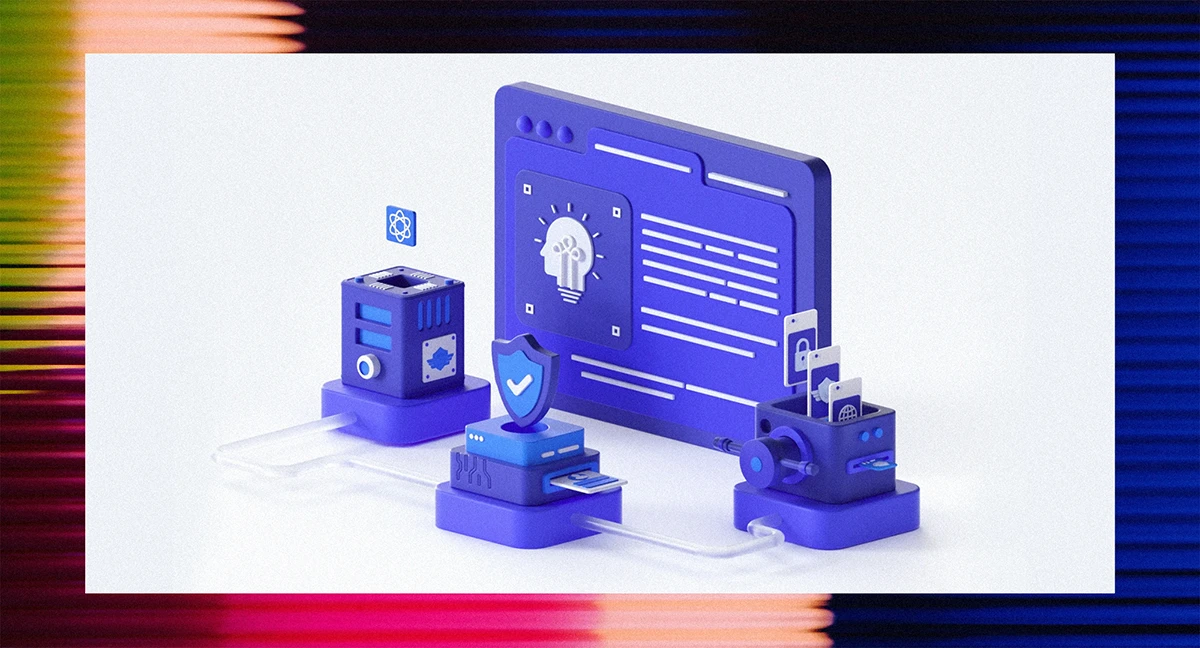
Pricing is a key consideration when partnering with a pharmaceutical marketing agency, as costs can vary widely depending on the scope, complexity, and duration of the engagement. Given the specialized expertise required—ranging from regulatory compliance to scientific communication and multichannel execution—pharmaceutical marketing services often involve premium investment. Understanding how agencies structure their fees, including project-based, retainer, or value-based models, helps clients align budgets with business goals. This section explores the factors that influence pricing and what to expect when negotiating with a pharmaceutical marketing agency.
Project Scope and Complexity
The breadth and depth of a pharmaceutical marketing engagement significantly impact pricing. Larger projects that encompass full product launches, multichannel campaigns, or extensive market research require more resources and expertise, leading to higher fees. Agencies price these engagements based on the level of strategic input, creative development, content production, and compliance oversight involved. Clients should expect pricing to scale with the complexity and customization needed to meet their unique brand and regulatory requirements.
Regulatory and Compliance Requirements
Strict regulatory standards in pharmaceutical marketing increase both the time and expertise necessary for content creation and review, which in turn affects pricing. Agencies must allocate additional resources to ensure materials undergo rigorous medical, legal, and regulatory (MLR) review, revisions, and approvals. This compliance-driven process adds layers of project management and quality assurance, which are reflected in the overall cost structure.
Service Model (Retainer vs. Project-Based)
Pharmaceutical marketing agencies may charge on a retainer basis for ongoing support or as a fixed fee for discrete projects. Retainers provide continuous access to agency teams for strategy, content updates, and campaign management, often appealing to clients with long-term marketing needs. Project-based pricing is common for specific deliverables such as brand launches or market research. Understanding these models helps clients anticipate both upfront costs and ongoing budget commitments.
Resource Allocation and Expertise
Pricing reflects the level of specialized talent and seniority involved in delivering the engagement. Agencies deploy medical writers, regulatory experts, strategists, creative professionals, and digital marketers, each with varying hourly rates. Projects requiring high-level scientific expertise or senior leadership involvement command premium fees. Clients should consider the agency’s team composition and experience when evaluating pricing proposals.
Geographic Reach and Localization
Engagements that span multiple countries or require localization, including translation and adaptation to local regulatory environments, typically incur additional costs. Pharmaceutical marketing agencies must coordinate cross-market approvals, adjust messaging for cultural relevance, and ensure compliance with local guidelines, all of which increase project complexity and pricing.
Technology and Analytics Integration
The use of advanced technology platforms, data analytics, and digital marketing tools can influence pricing structures. Agencies offering services such as AI-driven insights, customer journey analytics, or marketing automation may charge fees reflecting these value-added capabilities. Clients investing in technology-enabled pharma marketing solutions should expect pricing that accounts for licensing, integration, and ongoing data analysis.
Timeline and Urgency
Compressed timelines or expedited delivery often lead to higher costs due to the need for resource reallocation, overtime, or prioritization. Pharmaceutical marketing agencies may charge premium rates for rush projects or campaigns requiring rapid turnaround, reflecting the operational adjustments needed to meet tight deadlines without compromising quality.
Deliverable Types and Volume
The nature and quantity of deliverables—such as digital assets, printed materials, video production, or event support—also influence pricing. Projects with high-volume content creation or multimedia production demands generally require larger budgets. Agencies price accordingly to cover the creative, technical, and production resources necessary to meet these diverse deliverable requirements.
Why Hire a Pharmaceutical Marketing Agency
Partnering with a pharmaceutical marketing agency brings specialized expertise and industry knowledge that is difficult to replicate internally. These agencies understand the unique regulatory landscape, scientific complexity, and diverse stakeholder needs inherent to the pharmaceutical sector. By leveraging their experience in strategic planning, creative execution, and compliance management, pharmaceutical marketing agencies help companies accelerate product adoption, engage healthcare professionals and patients effectively, and maximize market impact. The following section highlights the key reasons why collaborating with a pharmaceutical marketing agency is a strategic investment for pharmaceutical brands seeking sustained growth and competitive advantage.
Deep Industry Expertise
Pharmaceutical marketing agencies bring specialized knowledge of the healthcare and life sciences sectors, including regulatory requirements, clinical data interpretation, and market dynamics. Their experience enables them to craft scientifically accurate, compliant messaging that resonates with healthcare professionals, patients, and payers. Working with experts familiar with the nuances of pharmaceutical marketing helps businesses avoid common pitfalls and ensures strategies are both effective and aligned with industry standards.
Access to Multichannel Capabilities
Pharmaceutical marketing agencies offer integrated services across multiple channels—digital, print, events, and sales enablement—to deliver cohesive campaigns that reach diverse audiences. They possess the tools and experience to optimize messaging for each platform, ensuring consistent brand presence and maximum engagement. This multichannel expertise enables businesses to efficiently manage complex communications that are essential in today’s fragmented healthcare environment.
Regulatory Compliance Management
Navigating the stringent regulatory environment in pharmaceutical marketing is critical to minimizing risk and maintaining brand integrity. Agencies have dedicated teams well-versed in medical, legal, and regulatory (MLR) review processes to ensure all materials comply with FDA, EMA, and other global regulations. Partnering with an agency reduces the compliance burden on internal teams and helps safeguard against costly legal challenges or delays.
Scalability and Flexibility
Pharmaceutical marketing agencies provide scalable solutions that can adapt to fluctuating business needs, from product launches to ongoing brand support. They offer flexibility in resourcing and service models, allowing companies to expand or reduce engagement based on project demands without the overhead of maintaining large internal teams. This adaptability is especially valuable for managing peak workloads or entering new markets efficiently.
Advanced Data and Analytics
Many pharmaceutical marketing agencies leverage advanced analytics and data-driven insights to inform strategy and measure campaign effectiveness. By tracking key performance indicators, customer engagement, and market trends, agencies help clients optimize marketing efforts in real time. This analytical approach enables better decision-making, improved ROI, and the ability to pivot quickly in response to market feedback.
Access to Creative and Technical Talent
Pharmaceutical marketing agencies assemble multidisciplinary teams that include medical writers, strategists, designers, digital marketers, and compliance specialists. This diverse talent pool ensures that all aspects of a campaign—from scientific accuracy to visual impact—are expertly handled. Companies benefit from high-quality, professionally executed campaigns without the challenges of recruiting and managing specialized internal staff.
Accelerated Time to Market
By outsourcing marketing functions to an experienced agency, pharmaceutical companies can significantly reduce time to market for new products or indications. Agencies provide proven processes, established workflows, and cross-functional expertise that streamline campaign development and execution. This acceleration is critical in competitive markets where early adoption can drive long-term commercial success.
Cost Efficiency
Working with a pharmaceutical marketing agency can be more cost-effective than building and maintaining a large in-house team with broad expertise. Agencies offer flexible pricing models and resource allocation, allowing clients to pay for only the services they need. Additionally, the agency’s ability to deliver campaigns efficiently and avoid costly compliance missteps contributes to overall budget optimization.
How to Choose The Most Reliable Pharmaceutical Marketing Agency

Selecting the right pharmaceutical marketing agency is a critical decision that can significantly impact the success of a brand’s marketing efforts and overall business objectives. Given the complexity of the pharmaceutical industry—marked by strict regulatory requirements, diverse stakeholder audiences, and rapidly evolving digital landscapes—choosing a partner with the right expertise, experience, and strategic approach is essential. This section explores the key considerations and criteria that pharmaceutical companies should evaluate when selecting an agency to ensure alignment with their goals, culture, and market challenges.
Relevant Industry Experience
When choosing a pharmaceutical marketing agency, it is crucial to evaluate their experience within the pharmaceutical and healthcare sectors. Agencies with a proven track record in handling products similar in therapeutic area, market size, or regulatory complexity bring valuable insights and established best practices. This experience ensures they understand the unique challenges and compliance requirements specific to pharmaceutical marketing, enabling them to deliver effective and tailored strategies.
Regulatory Expertise and Compliance
A key factor to consider is the agency’s expertise in navigating the complex regulatory environment governing pharmaceutical marketing. The ideal agency will have dedicated medical, legal, and regulatory review processes to ensure all communications meet FDA, EMA, and other regional standards. This compliance capability reduces risk and accelerates time to market, helping safeguard your brand’s reputation.
Multichannel Capabilities
The right pharmaceutical marketing agency should demonstrate proficiency in executing integrated campaigns across multiple channels, including digital, print, events, and direct outreach. Their ability to coordinate messaging consistently and effectively across these platforms maximizes audience engagement and drives better results. Look for agencies that offer a comprehensive suite of services with seamless cross-channel coordination.
Customization and Flexibility
Pharmaceutical marketing needs vary widely depending on product stage, target audiences, and strategic objectives. Agencies that offer tailored solutions and flexible service models are better positioned to meet your specific requirements. Whether you need support for a product launch, ongoing brand management, or localized campaigns, the agency should adapt its approach and resources to align with your goals.
Data-Driven Approach
An agency’s commitment to data analytics and performance measurement is vital for optimizing marketing outcomes. Look for partners who leverage advanced analytics, customer insights, and real-time reporting to guide strategy adjustments and demonstrate ROI. A data-driven approach ensures your marketing investments are targeted and effective, reducing waste and enhancing impact.
Creative and Scientific Integration
Effective pharmaceutical marketing requires blending scientific accuracy with creative communication. The agency should have multidisciplinary teams that include medical writers, regulatory experts, and creative professionals who collaborate closely. This integration ensures messaging is both compliant and engaging, resonating with healthcare professionals and patients alike.
Client References and Case Studies
Evaluating an agency’s past work through client references and case studies provides insight into their capabilities and working style. Look for evidence of successful campaigns in relevant therapeutic areas and business objectives similar to yours. Positive client testimonials and measurable results can help validate the agency’s ability to deliver on promises.
Cultural Fit and Collaboration Style
Finally, consider the agency’s culture, communication style, and collaboration processes. A strong partnership relies on transparency, responsiveness, and mutual understanding. Choose an agency that aligns with your company’s values and fosters a collaborative relationship, ensuring smoother project management and better overall outcomes.
15 Questions To Ask Pharmaceutical Marketing Agencies Before You Hire One

Before committing to a partnership with a pharmaceutical marketing agency, prospective clients often have important questions that help clarify the agency’s expertise, approach, and fit with their business needs. These questions address critical aspects such as the agency’s experience in specific therapeutic areas, regulatory compliance processes, team capabilities, and how success is measured. Understanding what to ask and what answers to expect can guide companies in making informed decisions and establishing a strong foundation for collaboration. The following section highlights common questions to consider when evaluating pharmaceutical marketing agencies.
Here are 15 questions a prospective client might ask before hiring a pharmaceutical marketing agency:
- What experience do you have working with pharmaceutical products in our therapeutic area?
- How do you ensure compliance with FDA, EMA, and other regulatory requirements?
- Can you provide examples of successful campaigns you’ve executed for pharmaceutical clients?
- What is your process for managing medical, legal, and regulatory (MLR) reviews?
- How do you integrate digital marketing with traditional channels in your campaigns?
- What capabilities do you have for patient education and engagement?
- How do you measure the effectiveness and ROI of your marketing efforts?
- Can you describe your team’s expertise in both scientific and creative areas?
- What is your approach to market research and audience segmentation?
- How do you handle multi-country or global campaigns with different regulatory landscapes?
- What technology platforms and tools do you use for campaign management and analytics?
- How flexible are your service models (e.g., project-based, retainer, or hybrid)?
- How do you collaborate and communicate with clients throughout the engagement?
- What is your typical timeline for delivering a product launch campaign?
- Can you provide client references or case studies relevant to our needs?
What Experience Do You Have Working With Pharmaceutical Products in Our Therapeutic Area?
Asking about an agency’s experience in your specific therapeutic area ensures they understand the unique scientific, regulatory, and market dynamics relevant to your product. Each therapy comes with distinct patient populations, treatment protocols, and competitive landscapes that require tailored marketing strategies. An agency familiar with your therapeutic area will be better equipped to develop targeted messaging and navigate key stakeholder networks, ultimately increasing the effectiveness of your campaigns.
How Do You Ensure Compliance With FDA, EMA, and Other Regulatory Requirements?
Regulatory compliance is a cornerstone of pharmaceutical marketing, and failure to adhere can result in legal penalties or reputational damage. It’s critical to understand how the agency manages content review and approval processes to meet FDA, EMA, and other global standards. Their approach to compliance demonstrates their familiarity with guidelines, risk mitigation strategies, and ability to deliver promotional materials that satisfy regulatory scrutiny without compromising creativity or impact.
Can You Provide Examples of Successful Campaigns You’ve Executed for Pharmaceutical Clients?
Requesting examples or case studies of prior work allows you to assess the agency’s proven track record in delivering measurable results. These examples showcase their strategic thinking, creative capabilities, and ability to meet client objectives. Seeing how the agency has handled similar challenges or product types provides reassurance about their capacity to produce effective pharmaceutical marketing campaigns that resonate with target audiences.
What Is Your Process for Managing Medical, Legal, and Regulatory (MLR) Reviews?
The MLR review process is essential to ensuring that all marketing materials are medically accurate, legally sound, and compliant with industry regulations. Understanding the agency’s workflow for coordinating reviews and addressing feedback helps set expectations for timelines and collaboration. A well-structured MLR process reduces bottlenecks, accelerates approvals, and minimizes the risk of compliance issues—critical for timely and effective campaign launches.
How Do You Integrate Digital Marketing With Traditional Channels in Your Campaigns?
Pharmaceutical marketing today requires a seamless blend of digital and traditional tactics to effectively reach diverse stakeholders. Inquiring about integration capabilities reveals whether the agency can develop omnichannel strategies that leverage each platform’s strengths—whether social media, email, print, events, or sales materials. This integration ensures consistent messaging and maximizes engagement across healthcare professionals, patients, and payers.
What Capabilities Do You Have for Patient Education and Engagement?
Patient education is increasingly important as healthcare shifts toward patient-centered care and adherence programs. Understanding an agency’s ability to create educational content, support tools, and engagement platforms helps determine if they can support your goals to empower patients and improve outcomes. Effective patient engagement strategies can differentiate your brand and build long-term loyalty, making this a critical capability to assess.
How Do You Measure the Effectiveness and ROI of Your Marketing Efforts?
Measuring success is fundamental to optimizing marketing strategies and demonstrating value. Asking how the agency tracks performance, sets KPIs, and reports ROI ensures they employ data-driven approaches to guide decision-making. Agencies that provide transparent analytics and actionable insights enable clients to adjust campaigns proactively, maximize impact, and justify marketing investments.
Can You Describe Your Team’s Expertise in Both Scientific and Creative Areas?
Pharmaceutical marketing requires a balance of scientific rigor and creative communication. Understanding the qualifications and backgrounds of the agency’s team members—such as medical writers, regulatory specialists, strategists, and creative professionals—helps evaluate their ability to produce accurate yet compelling content. A multidisciplinary team ensures campaigns are compliant, engaging, and credible within the pharmaceutical space.
What Is Your Approach to Market Research and Audience Segmentation?
Effective marketing starts with a deep understanding of the target audience. Asking about the agency’s methods for market research and segmentation reveals how they identify and prioritize key healthcare professionals, patient groups, and payers. This insight informs tailored messaging and channel strategies that drive better engagement and conversion, ensuring marketing resources focus on the highest-impact opportunities.
How Do You Handle Multi-Country or Global Campaigns With Different Regulatory Landscapes?
Pharmaceutical companies often operate in multiple countries with varying regulatory requirements and cultural nuances. It is important to understand how the agency manages localization, regulatory compliance, and cross-market coordination for global campaigns. Agencies experienced in navigating these complexities can deliver consistent messaging adapted to local markets, reducing risk and ensuring efficient global execution.
What Technology Platforms and Tools Do You Use for Campaign Management and Analytics?
Technology underpins modern pharmaceutical marketing, from campaign automation to data analytics and customer relationship management. Asking about the agency’s technology stack provides insight into their capabilities for workflow efficiency, real-time monitoring, and performance optimization. An agency leveraging advanced platforms is better positioned to deliver scalable, data-driven marketing solutions.
How Flexible Are Your Service Models (E.g., Project-Based, Retainer, or Hybrid)?
Understanding the agency’s pricing and engagement models helps ensure alignment with your budgeting and operational needs. Flexibility in service delivery—whether through retainers for ongoing support or project-based contracts for specific initiatives—allows you to tailor the partnership to your evolving priorities. Discussing this upfront helps prevent surprises and enables smoother collaboration.
How Do You Collaborate and Communicate With Clients Throughout the Engagement?
Effective communication is essential to the success of any agency-client relationship. Asking about collaboration processes, reporting cadence, and points of contact ensures transparency and responsiveness. A strong partnership relies on clear expectations, regular updates, and the ability to adapt based on feedback, so understanding how the agency manages these dynamics is critical.
What Is Your Typical Timeline for Delivering a Product Launch Campaign?
Knowing the agency’s typical project timelines helps set realistic expectations for planning and coordination. Product launches often involve complex deliverables and strict regulatory reviews, so understanding how long each phase takes—strategy development, creative production, compliance approvals, and execution—is vital. This information aids in aligning internal schedules and preparing for market introduction.
Can You Provide Client References or Case Studies Relevant to Our Needs?
Requesting references and case studies offers an opportunity to validate the agency’s claims through independent feedback and tangible results. Hearing directly from past or current clients about their experiences helps assess the agency’s reliability, quality of work, and ability to meet deadlines. Relevant case studies also provide concrete examples of how the agency addressed challenges similar to yours, increasing confidence in their fit as a partner.
Searching For The Right Pharmaceutical Marketing Agency?
Hiring a pharmaceutical marketing agency offers specialized expertise, regulatory knowledge, and strategic insights that are crucial for navigating the complexities of the healthcare industry. These agencies bring a multidisciplinary approach that blends scientific rigor with creative communication, enabling brands to engage healthcare professionals, patients, and payers effectively. Their ability to manage compliance, integrate multichannel campaigns, and leverage data-driven analytics helps accelerate product adoption, optimize marketing spend, and drive measurable business outcomes. Partnering with a skilled pharmaceutical marketing agency ultimately empowers companies to focus on innovation and patient care while confidently reaching their commercial goals.
G & Co. stands out as a pharmaceutical marketing agency with deep industry expertise and a proven track record of delivering integrated, compliance-driven marketing strategies tailored to complex pharma environments. Known for combining scientific accuracy with compelling storytelling, G & Co. helps pharmaceutical brands engage diverse stakeholders through data-backed campaigns that maximize reach and impact. Their collaborative approach, regulatory rigor, and focus on measurable results position them as a trusted partner for companies seeking to elevate their market presence and accelerate growth in a highly competitive industry.
Submit an inquiry to G & Co. on our contact page or click on the blue "Click to Contact Us" button on the bottom right corner of your screen for your convenience. We look forward to hearing from you.






%20(1).png)


